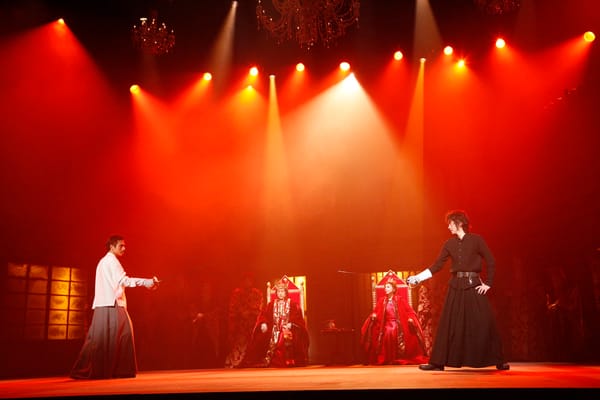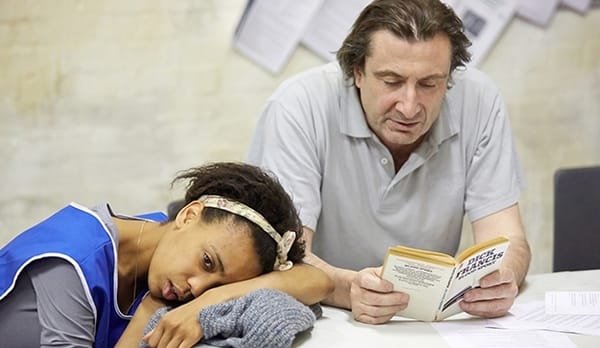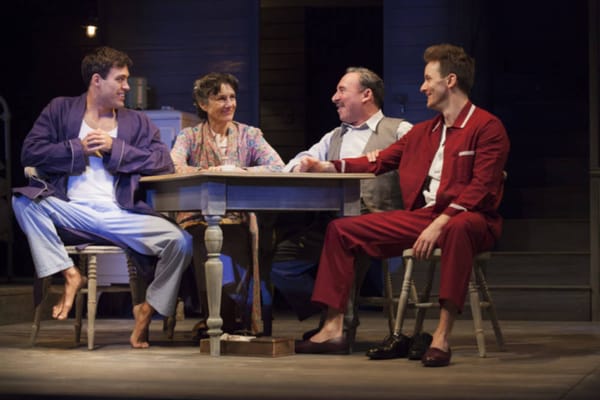A Return to Tradition for the National Theatre
Fred Fyles reviews the latest effort from director Simon Godwin, the lively restoration comedy The Beaux' Stratagem
For every action there is an equal and opposite reaction. It seems this rule holds as true in theatre as it does in physics. After the cerebral existentialism of The Hard Problem, the bells-and-whistles approach of Rules for Living, and the highly modern adaptation of Everyman, the National Theatre return to well-worn theatrical traditions. The Beaux’ Stratagem is a streamlined, watertight performance; it doesn’t offer any radical reinterpretation of restoration comedy – and perhaps it doesn’t have to – but this means that, despite the ability of the cast and crew, it remains little more than a light diversion.
Fielding and Bennett-Warner tackle their meaty parts with aplomb
One of the last examples of a Comedy of Manners, The Beaux’ Stratagem was the last play of Irish playwright George Farquhar, and – like a majority of works of its time – has a convoluted, twisting plot, full of double-dealings, misunderstandings, and bawdy humour: Aimwell and Archer, the two beaux of titular fame, find themselves down on their luck, their squandering of ten thousand pounds in London leading them to Lichfield, where they enact a plan to ensnare a wealthy bride. Aimwell falls in love with Dorinda, while Archer simultaneously woos Dorinda's sister-in-law, Mrs Sullen, and Cherry, the daughter of landlord Boniface. There are a few obstacles to their plan: Mr Sullen is still in the picture, despite the fact that his send-up of a country squire is the very opposite of the refined London character of his wife; Boniface thinks the two gentlemen are highwaymen, come to rob the ladies’ house; and then there are the French prisoners of war to deal with. Make no mistake, The Beaux’ Stratagem is as convoluted as they come, but the twists and turns of the plot are softened by the wit contained within Farquhar’s script.
However, The Beaux Stratagem also deals with more serious themes, mainly the restrictive marriage laws in England at the time, which made divorce pretty much non-existent. This argument reaches a height in a courtroom-style scene that sees Mr and Mrs Sullen arguing their cases, with Mrs Sullen aptly comparing the golden links of wedlock to the iron manacles of law. After all the bustle of the play, this interlude comes as a surprise, with the language shifting to a more dramatic, eloquent style that is at odds with the rapid-fire quips of the rest of the play. This attribute is explained away when one considers that most of the language from this section is cribbed from John Milton’s 17th Century pamphlets, which – as flowing as it may be – gives it an incongruous edge. Set designer Lizzie Clachan has created a solid staging, with a multi-tiered, almost Escher-style house whose clever mechanics allow it to switch from a country inn to a manor house, underlining the fact that little separates the behaviour of the characters but money. The setting, which looms over the audience, would perhaps dwarf a smaller stage, but in the context of the Olivier Theatre, the National’s largest venue, it makes perfect sense. Outside this set, representing the Staffordshire town, two other places lurk out of sight: the gaudy lights of London, so esteemed by Mrs Sullen (it is the only place, according to her, where a woman can turn the tables of power on her husband), and the growing threat of an expanding France, both of which colour the plot.
The Beaux’ Stratagem is a return to the National’s well-worn theatrical traditions
There are no complaints to be made about the casting, with each actor handling their part with confidence; particular mention should go to Susannah Fielding and Pippa Bennett-Warner, who play Mrs Sullen and Dorinda, respectively. They tackle the meaty parts with aplomb, transforming them into creatures of comic timing and wit, who seem to be prototypes of the Austen heroine who would come to prominence at the end of the century.
The Beaux Stratagem is a fine play; the extremely capable cast builds on Clachan’s rock-solid staging, working off a script that is one of the best examples of its genre. Director Simon Godwin is a safe pair of hands in which to entrust the responsibility of making the most of The Beaux’ Stratagem, proving himself more than up to the task of respecting the original text. Ultimately, it equals exactly the sum of its parts; and while it may not exactly thrill, but it certainly won’t disappoint.
The Beaux' Stratagem is on at the National Theatre until the 20th September. Tickets from £15. Available online










